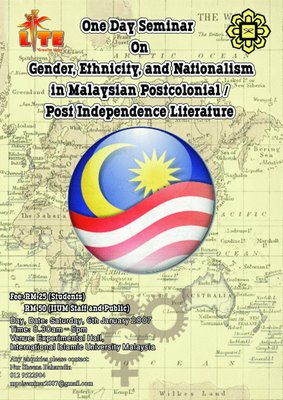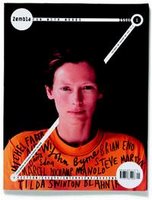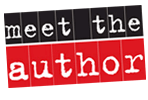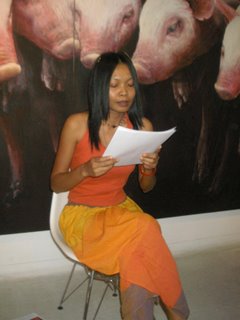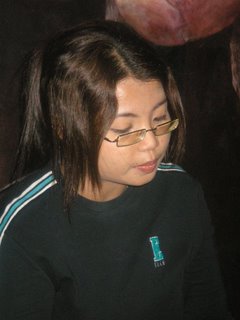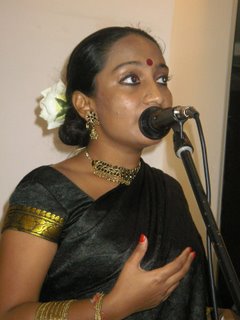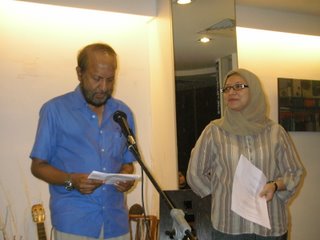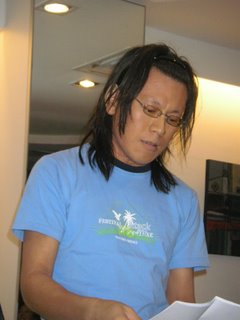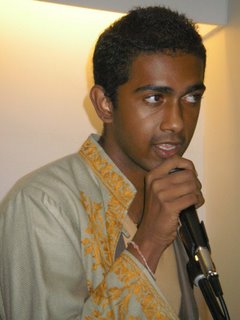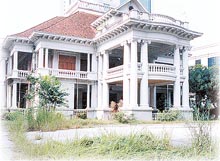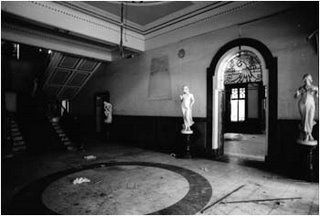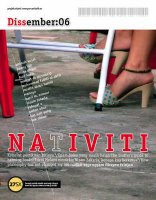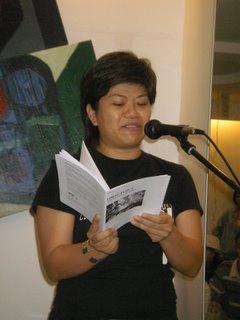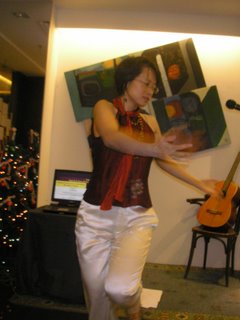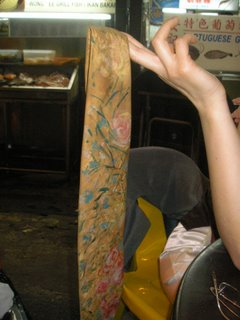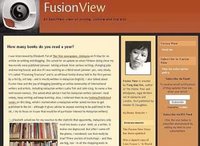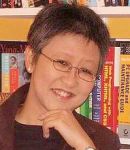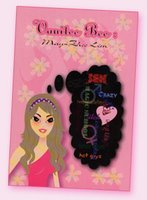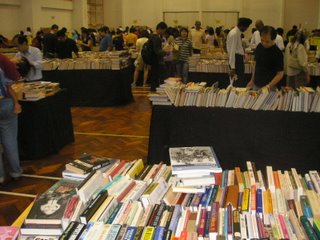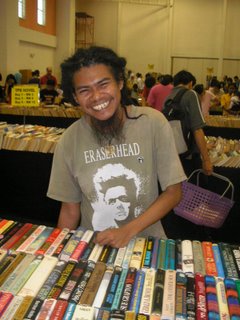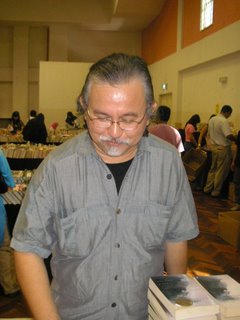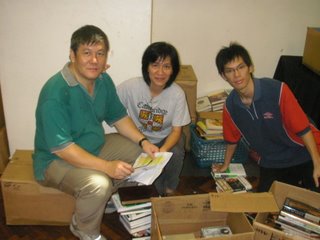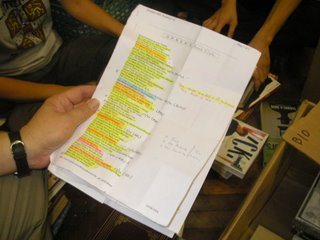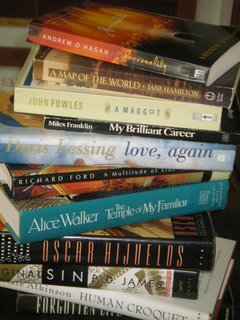Raman writes about book reviewing and links to a very interesting article on
DailyIndia.com.
Now, I'm not sure whether he was just summarising the Indian article or talking about the Malaysian situation or both together when he writes:
Everyone is a critic. There is no formal training school for writing literary reviews. No formal standards. But we know all about that. We can clearly see from some of the reviews in our newspapers, that often the writer has not even read the book, or else what goes for a review is merely a synopsis of the story. The prerequisite of reading a book before doing a review is also probably one reason for the lack of local book reviews in our local papers, it being easier to source a review of a foreign book using Google.
A bigger question has to be ... where are the reviews in the first place? Of the daily English newspapers only the
Star seem to have reviews at all. There's an overview of a whole miscellany of books on Fridays and then a page or two of reviews in
Starmag on a Sunday. (Fei wrote to tell me that there is quite a lot more in the Chinese language dailies, which is interesting!)
One of the biggest problems is that there simply
aren't enough reviewers. I'm drowing in a kind of guilt here - I need to get some reviews finished and sent out and I'm being much too slow about it (though one of my reviews appears this Sunday, so that's something at least). The first challenge is to increase the size of the reviewing pool. (Not so long ago Starmag put out a plea for
reviewers, but i don't think they got an enormous response.)
The lack of space for reviews, the lack of reviewers, means that most books the public would be interested in reading about, just don't get publicised. Not good when we are trying to create a reading public, hey?
The greatest casualties though, are of course local writers. How often does a book by a local writer get properly and critically reviewed? How can a writing community grow where there isn't proper feedback on a writer's work? (Again I feel guilty here ... must make more of an effort! But should that effort be mine alone?)
Can anyone be a critic? Do reviewers need specific training? As Raman says, there is no formal training for reviewing. Not even for those whose reviews appear in the
New York Times or
The Guardian. Reviewers tend have come in as journalists from other sections of the newspaper. The best reviewers, though, tend to be other writers.
Whatever the reviewers' backgrounds, they need to know what they are talking about, which means that they do need to be enthiastic readers and have sufficient understanding of what the writer is trying to do, as well as be able to place the book in its wider context.
Reviewing, of course, has to be something of a labour of love. I poke my bookloving friends to have a go and they always reply
"No time, lah." It takes far longer to write a good review than an article of equivalent length, because real thought has to be poured into it. (And of course, the book has to be read first! It's a busman's holiday if you love the book, but a total drag if you don't!)
Raman does local reviewers a disservice by hiding behind vague generalities when he takes a pot-shot at all of them without pointing to specific pages and specific reviews. I enjoy the fiction reviews in
Starmag (when they appear!) and find them well-written ... And in honesty I try to do the best job that I can when I write a review, even if I feel I fall way short of the standard set by the best book pages overseas.
What I'm trying to say in this post is that reviewing is important, particularly of local books, and that perhaps we have a collective responsibility towards making sure books are reviewed.
Raman puts up short reviews on his website, but I wonder if he would ever consider putting his words out for a much larger audience by writing for the papers? His reviews would be ones I'd like to read! (
"No time," he'll say. And it's true that one person shouldn't be expected to wear too many hats. All the same ... )
Meanwhile, on the subject of reviewing,
New York Times book review editor Sam Tanenhaus
answers readers questions about his work.
His mission statement?:
... to publish lively, informed, provocative criticism on the widest-possible range of books and also to provide a kind of snapshot of the literary culture as it exists in our particular moment through profiles, essays and reported articles. There are many, many books published each year - hundreds stream into my office in the course of a week. Our job is to tell you which ones we think matter most, and why, and to direct your attention to authors and critics who have interesting things to say, particularly if they have original ways of saying them. At a time when the printed word is being stampeded by the rush of competing "media," we're here to remind you that books matter too - that reading, as John Updike's invented novelist Henry Bech says, can be the best part of a person's life. There's no plaque on the wall. But there is a framed photo of Kurt Cobain.
Update:Really enjoyed
Alex Tang's post about reviewing ... which incorporates a review about a reviewer!
Also worth a read is
this horror story on the Guardian blog about a reviewer who reviewed a non-existent book!
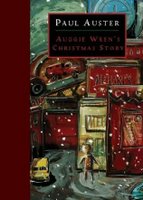 Read a book in just twenty minutes yesterday over a cup of tea.
Read a book in just twenty minutes yesterday over a cup of tea.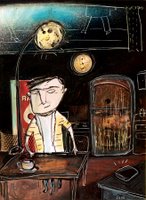 Wren offers to tell the author the best Christmas story he has ever heard in exchange for lunch. And in the diner he weaves a tale ... which is unsentimental, has no santas or angels, or trees or snow, but even as it overturns all expectations and blurs moral lines, still touches the heart.
Wren offers to tell the author the best Christmas story he has ever heard in exchange for lunch. And in the diner he weaves a tale ... which is unsentimental, has no santas or angels, or trees or snow, but even as it overturns all expectations and blurs moral lines, still touches the heart.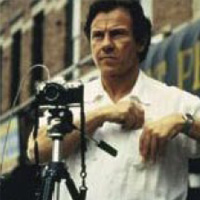 The little story inspired Wayne Wang's 1995 film, Smoke, for which Auster wrote the screenplay and created one of my favourite movie characters . (Blue in the Face features the same cast of characters and was entirely improvised, and filmed on the back of Smoke in just five days.)
The little story inspired Wayne Wang's 1995 film, Smoke, for which Auster wrote the screenplay and created one of my favourite movie characters . (Blue in the Face features the same cast of characters and was entirely improvised, and filmed on the back of Smoke in just five days.)



